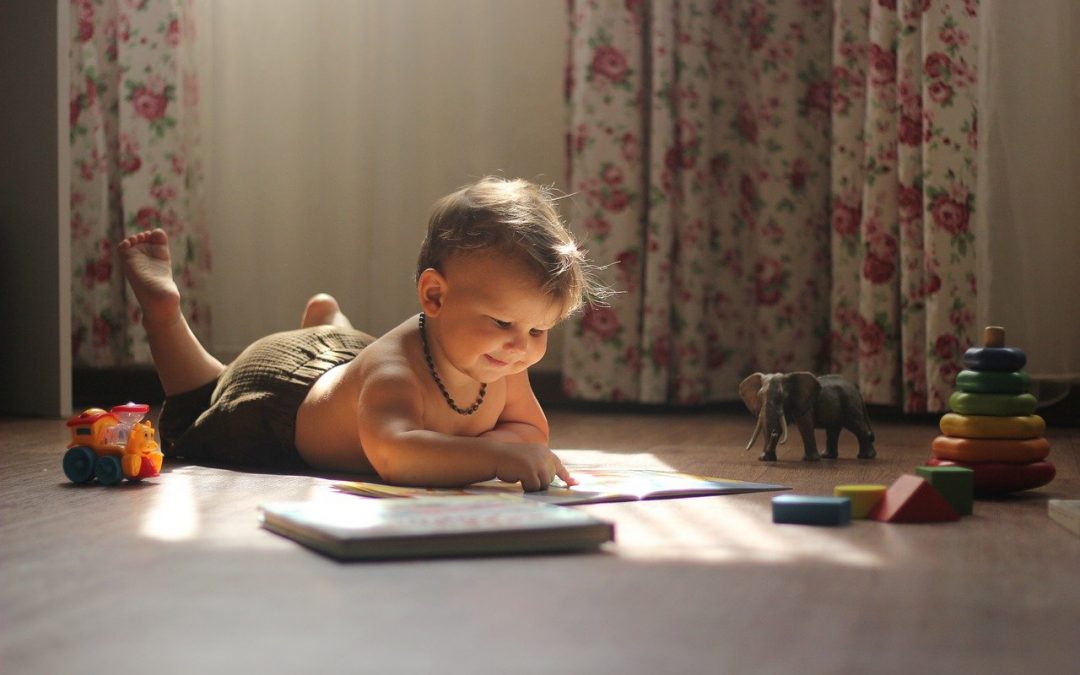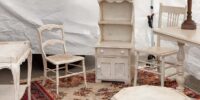Our kids are the future, and we can give them the best opportunity of having a healthy childhood through educational toys. Science has shown that toys can enhance a child’s cognitive learning. One significant aspect of this is that the benefits aren’t limited to one type of toy. Instead, there are a variety of toys that can improve your child’s intelligence. Some of the most popular toys include puzzles, train kits, kitchen sets, trampolines, tri-cycles, tactile discs, and card games.
Train Kits
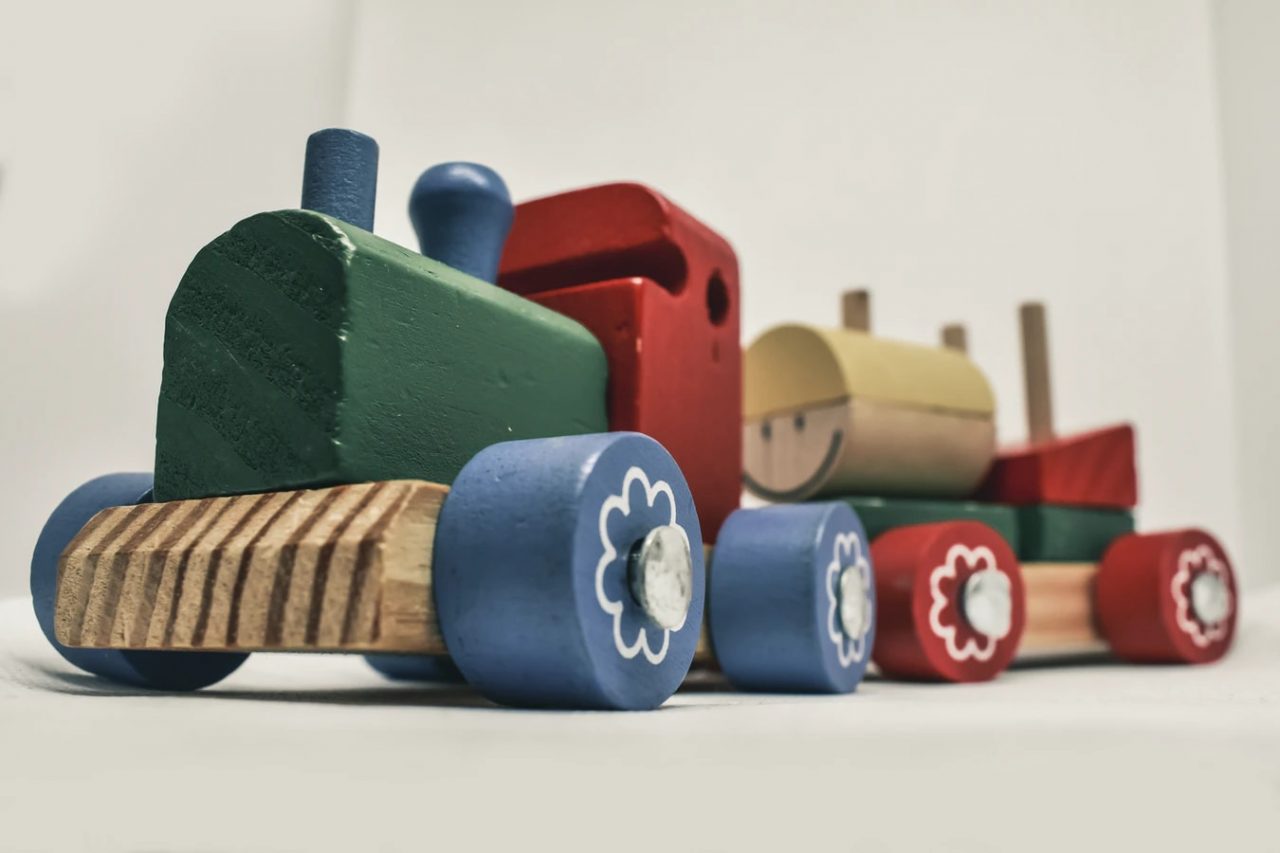
Playing with train kits is also thought to help improve your child’s cognitive skills as they are able to learn how to use vocabulary. They can be exposed to words such as mountain, bridge, and station as they play with the train. Similar to puzzle sets, your child will begin to recognize different items they are playing with. As the child interacts with the toys, ask them to count the number of train carriages or wheels. You can give them tasks like making the train cross a bridge, and they’ll learn how to be imaginative as they create scenarios for the train and passengers.
Puzzle Games
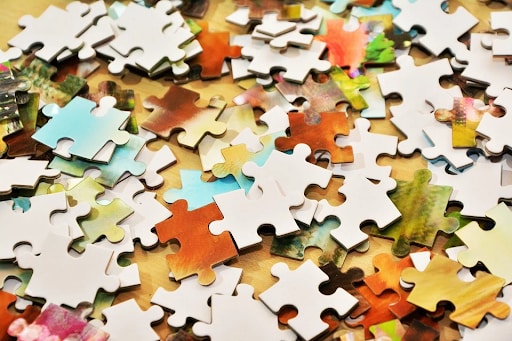
A well-known favourite past-time, puzzle games. Puzzles are believed to be one of the best toys for children. When your child is solving puzzles, they are engaging in fine motor skills and gross motor skills. Fine motor skills allow a child to develop small movements that are necessary for handwriting. This more delicate form of hand-eye coordination will help them later in life. Gross motor skills are for heavier movements, such as picking up and dropping items.
Problem-solving is another skill the child will develop from playing with puzzles and improving their memory. Your child will also learn shape recognition, which helps them understand how puzzles fit together.
Kitchen Sets
Children who play with kitchen sets get to interact in storytelling. They can act out different situations and use their creativity to make up new foods. Playing in a kitchen not only extends your child’s imagination but also helps them develop their motor skills. Your child will learn how to grasp utensils and open cupboards. They’ll figure out how to hold and move small items when playing with kitchen tools.
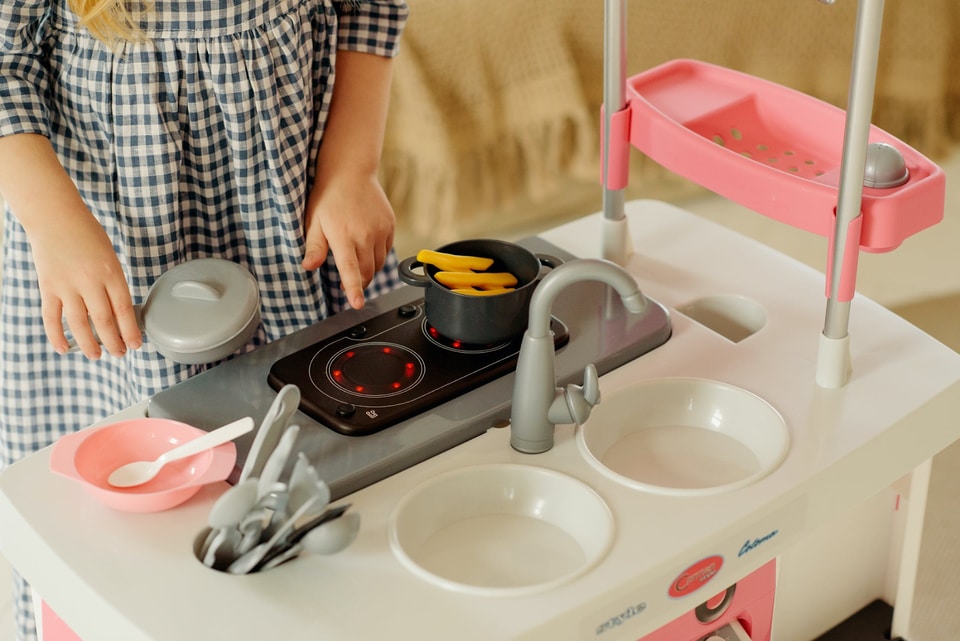
Other benefits include critical thinking as a child has to problem-solve while playing with their kitchen set. For example, children begin to understand what foods need to be in the fridge. They begin to comprehend that the stove is hot and the sink has cold water. Your child has to come up with a solution for manoeuvring and interacting with their kitchen set. They may also gain social skills as they talk and communicate while cooking.
Trampolines
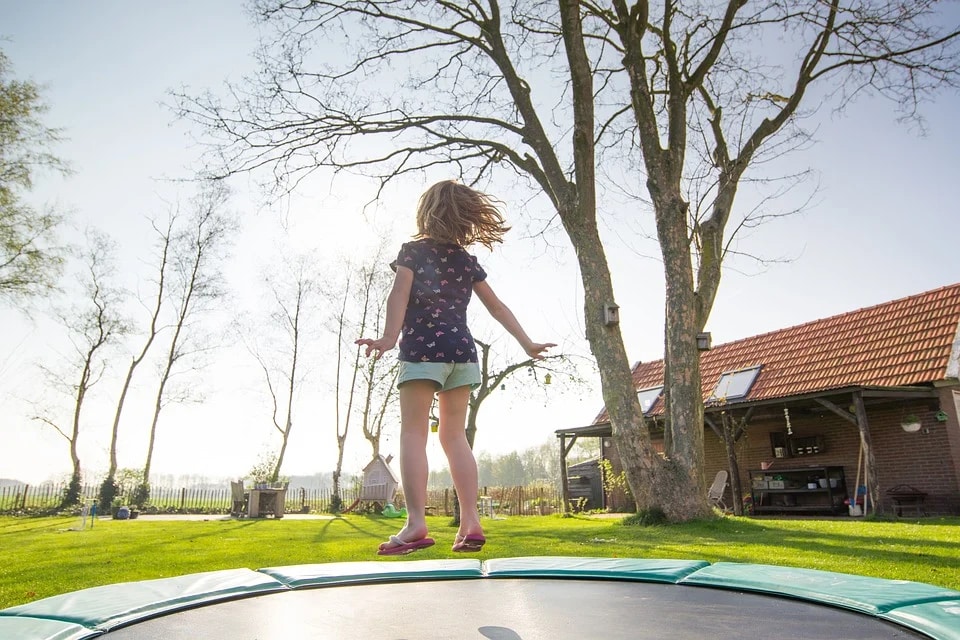
Kids love trampolines for many reasons, but you’ll love them even more for their subtle benefits. You can get a small trampoline with a sturdy safety net designed for toddlers and small children. Some of the cognitive development benefits trampolines have are motor skills, confidence, better focus, and improved eyesight. Jumping on the trampoline will improve your child’s balance and posture. They gain greater coordination and physical skills when moving around and falling on the trampoline. They gain stronger focus and eyesight, which teaches your child to pay attention to what they are doing as they jump and navigate around the trampoline. Trampolines improve heart health, a more robust immune system, and better balance.
Card Games
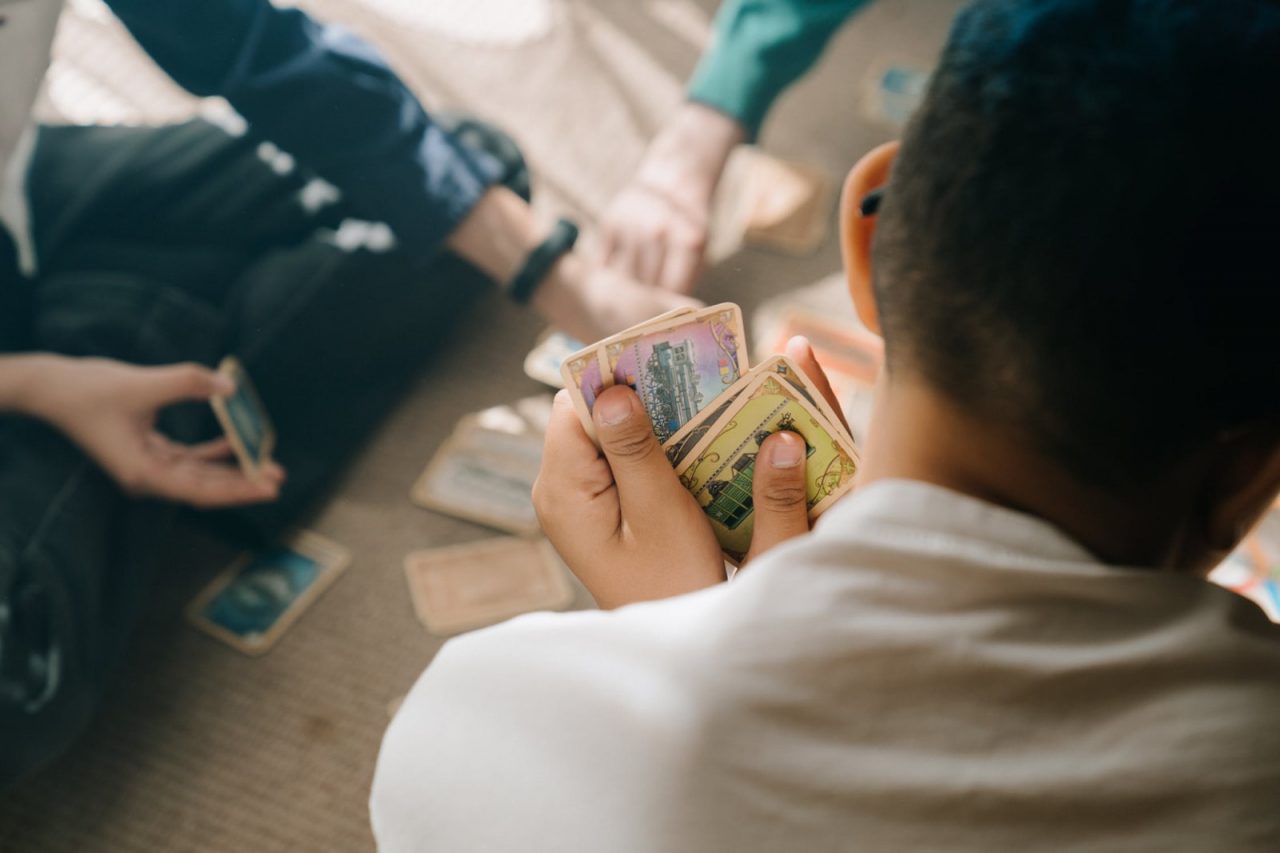
These are excellent for kids to improve their ability to memorize and recognize patterns. Your child will practice the ability to match and recognize different images on the cards. They also can learn mathematical skills and reasoning. They gain the ability to engage in probability while playing. However, it is not dull to do statistics in these games as kids are having fun playing with others. Children can also gain emotional intelligence while engaging in friendly competition with the other game players. They begin to communicate and understand the rules of the game. Your child can begin to understand how to handle their emotions while playing the game, whether they win or lose.
Riding Tricycles or Toy Vehicles
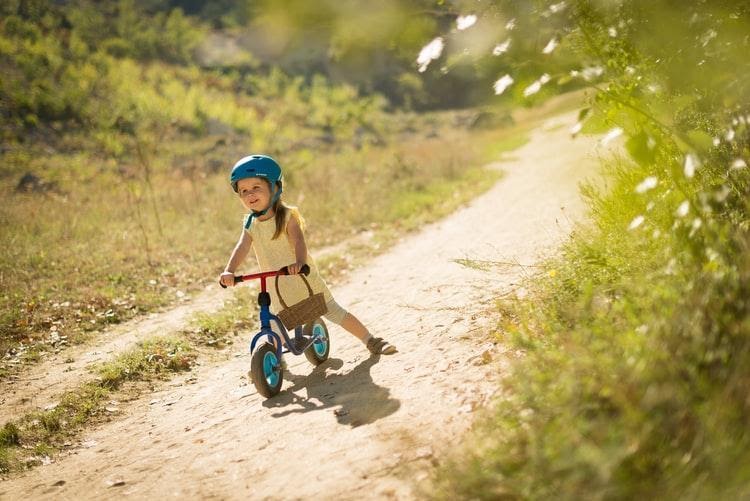
Riding in a tricycle or toy car has many more benefits besides the smile factor. Your child learns how to steer and manoeuvre the tricycle they are in, which helps them understand how to focus and pay attention. The child gains coordination as they can avoid obstacles on their path. They also have to climb onto or off the tricycle and learn how to have balance while doing so. This gives your child a form of independence as they begin to ride the toy alone. They’ll gain a boost to their confidence as they can get around objects with more dexterity. It’s a great way to prepare your child to understand how to take the initiative in outdoor areas.
Figures or Figurines
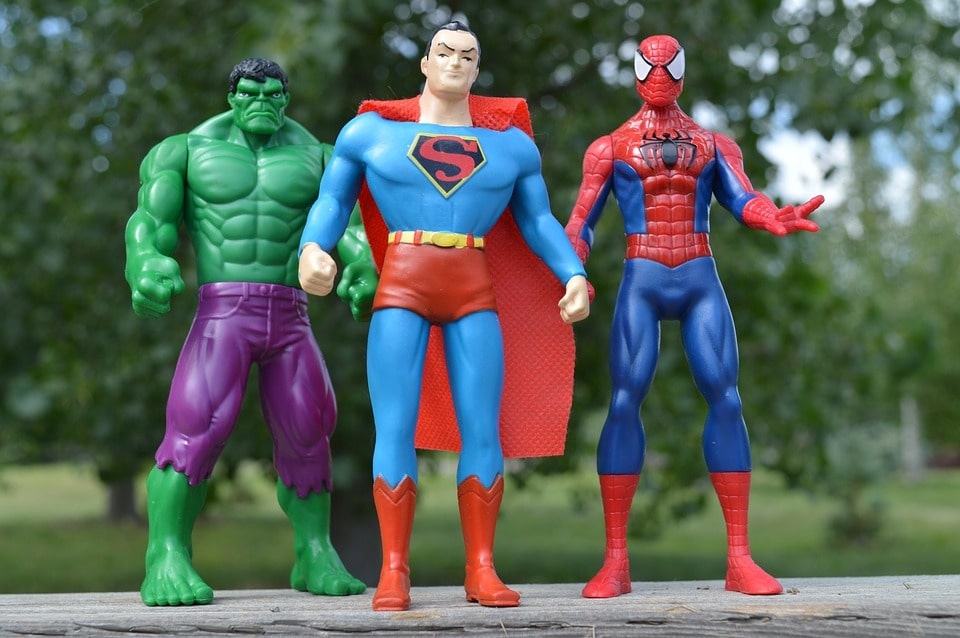
When playing with figures or figurines, children learn all about imaginary play. Your child is encouraged to create scenarios where they communicate for the toys, allowing them to develop their vocabulary. Children gain fine motor skills from playing with these toys as they interact with each other or items in a toy house. Playing with figures also aids children in developing a storyline and teaches them healthy interaction. You can show your child how figures can be nice to one another and help your child positively interact with their toys.
These are just some of the great toys that expose children to higher-level thinking when interacting with their games. Playtime is essential for a child’s development and learning because it helps them increase their cognitive, physical, mental, emotional, and creative ability to interact with the world around them. There are various kids learning programs you could also consider to help your child gain new knowledge.
Gabi Bellairs is a freelance writer and copy strategist who has worked with a range of different companies and individuals over the course of her career. Her interests lie in travel, from her times exploring South Africa, as well as events and DIY.

